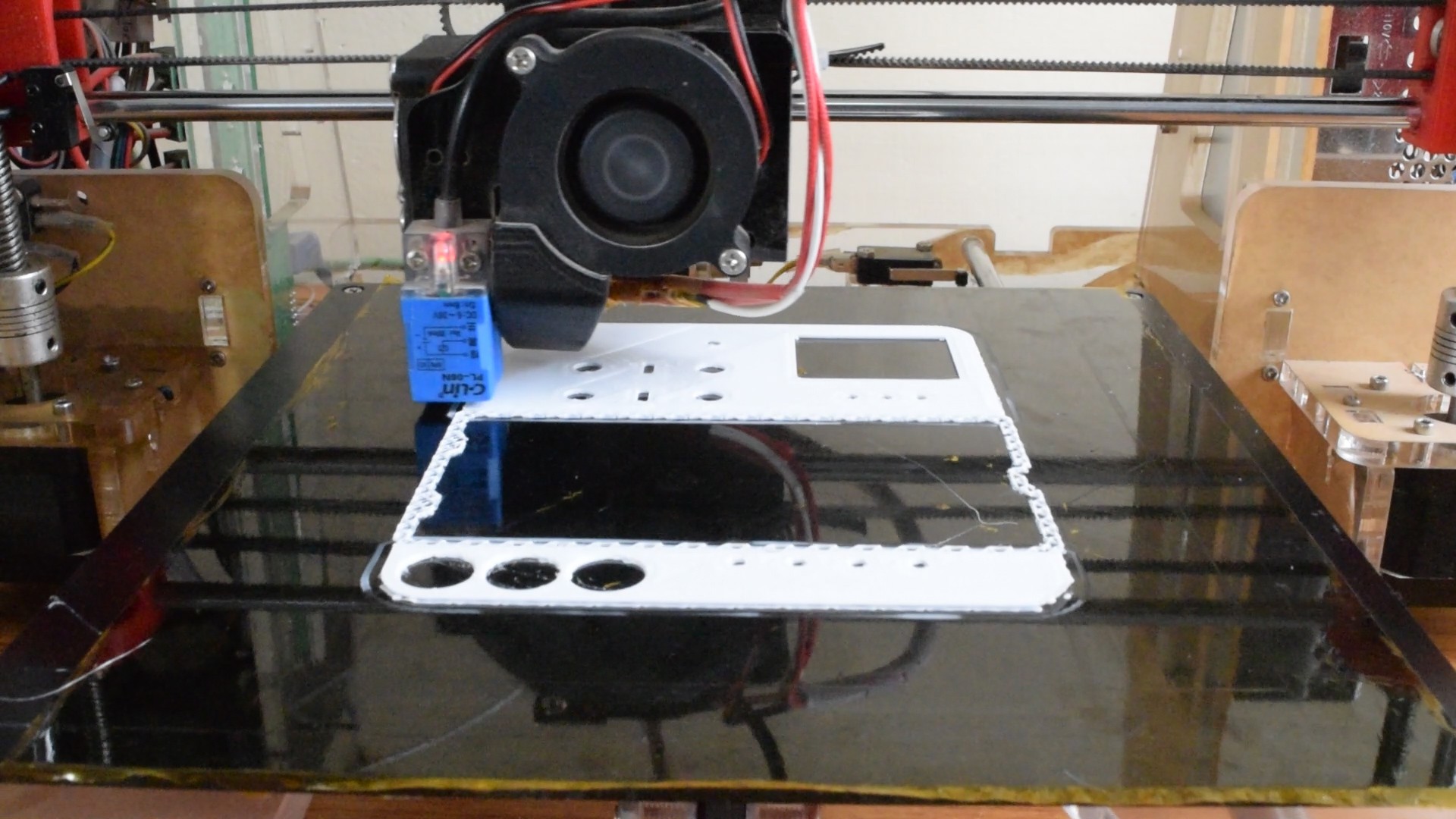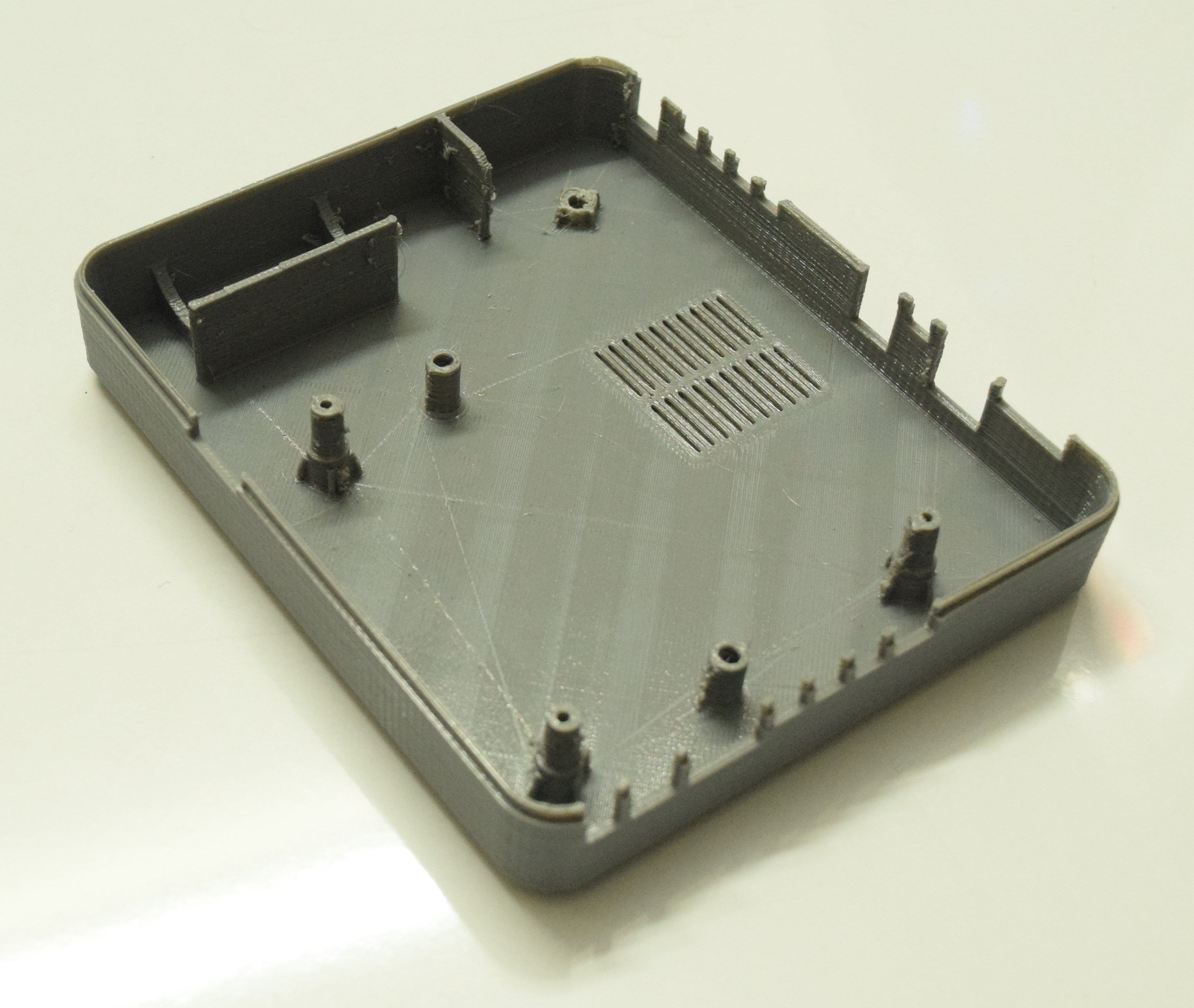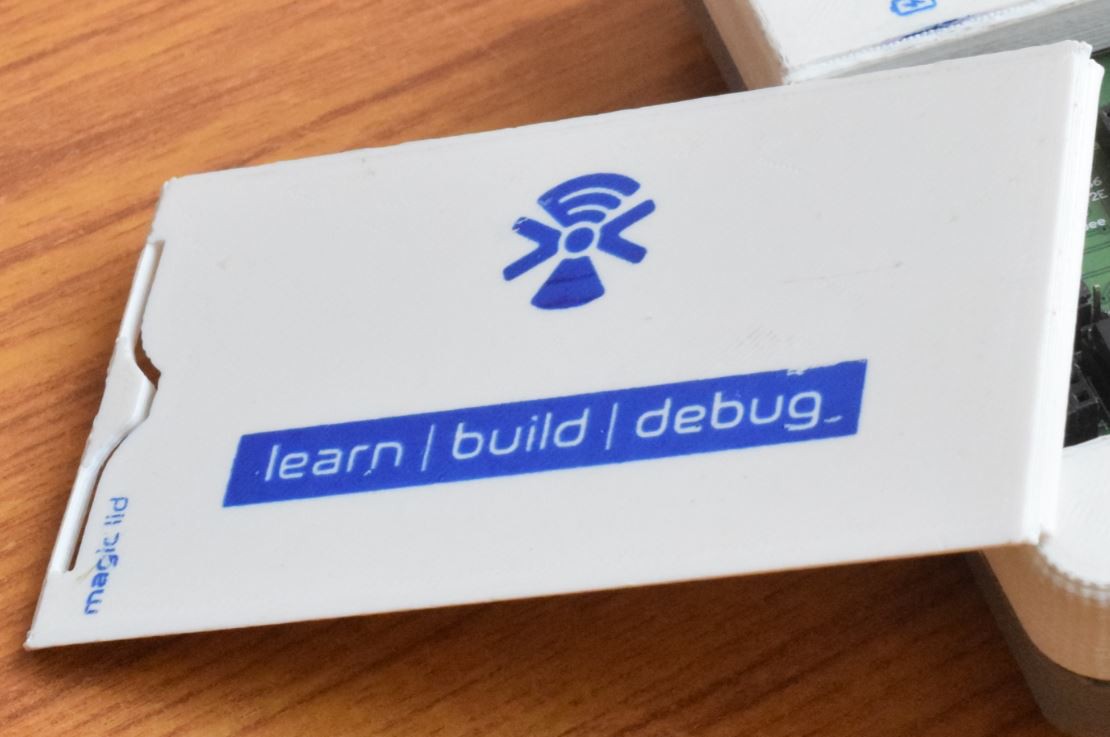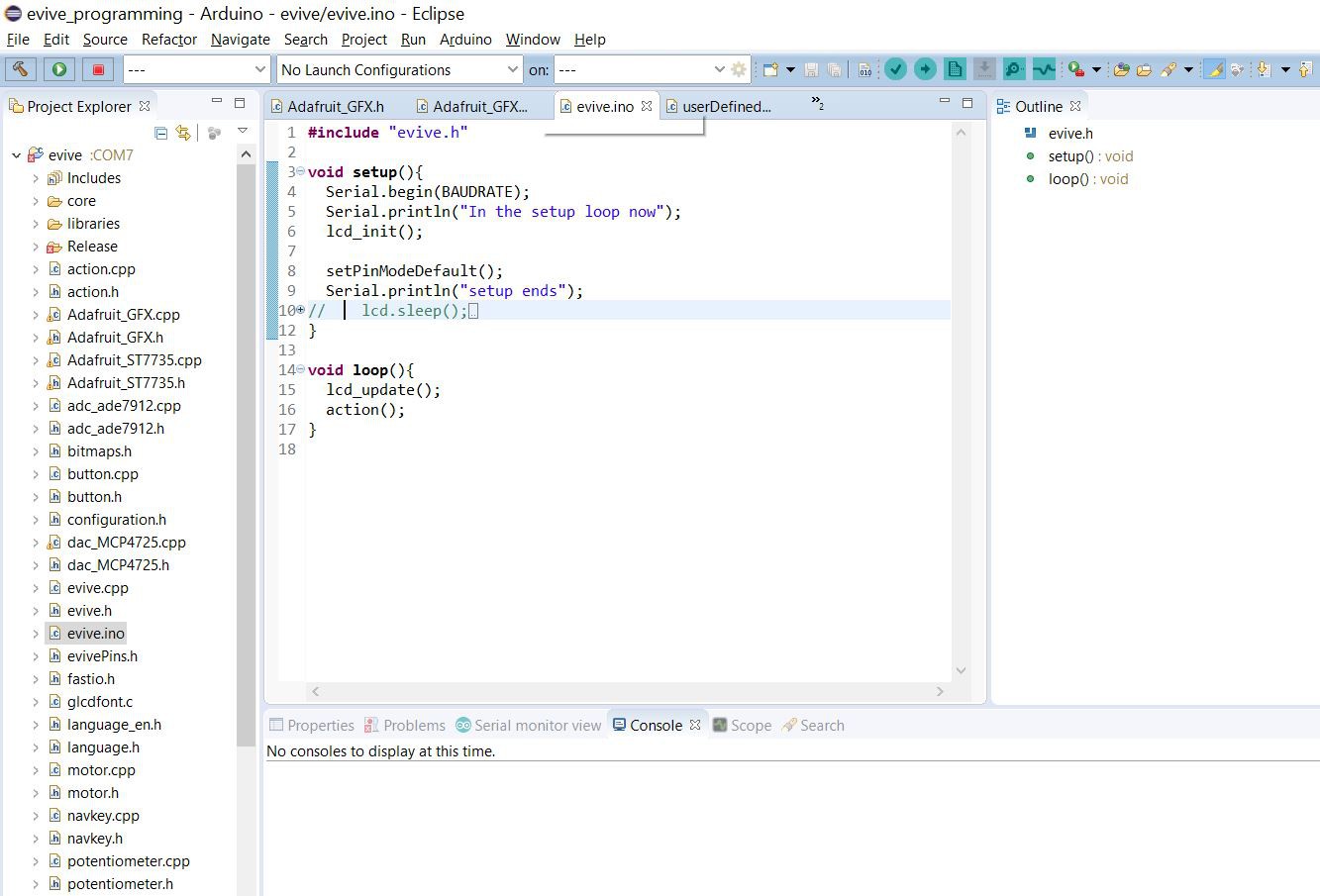-
3D Printing of the casing
08/13/2016 at 16:04 • 0 commentsLets show how we made the casing of evive. There are three parts of casing:- Bottom Case
- Top Case
- Lid (We call it magic lid)
All the CAD files are available opensource at: https://grabcad.com/library/evive-case-1
For prototyping of evive, we have used 3D printing using PLA material with Chinese version of Prusa i3 printer.
The printer was performing beyond our expectation. Its really very cheap (just 250USD) and good quality. The least thickness of casing is 1.5mm and the printed part is of good strength. We tested it even by dropping with jerk. The tolerances were also very less (~0.5mm). For getting polished finish on the base side, we used Kapton Tape. The design is according to plastic injection molding and will do that during mass manufactuing.
The following are the printed parts.![]()
![]()
The text on surface is printed from local carpenter cum studio shop using screen printing. Screen printing is the same process as used for printing on T-shirts. Also we tried to do that using the EZ screen printing kit, but of-course the professional person was much better. Also the advantage of using Kapton tape to get polished like surface helped us to get better screen print. -
Programming of Menu based Software using Arduino
08/13/2016 at 15:02 • 0 commentsEvive can be programmed in the same way as any Arduino MEGA. But many times we face that even for a small job like testing a motor or sensing at any ADC channel, we need to write a small code. It becomes frustrating sometimes. So we thought of making a software kind of thing using Arduino IDE (and C++) .Since evive has a TFT screen, joystick and many hardware stuff like switches, pots etc, we have made a menu based system. It is developed using the framework of Marlin program used in 3D printers.
Of course, it was not a simple Arduino sketch, it required lots of libraries. So we used eclipse Arduino IDE. Its very good tool now as it has inbuilt Arduino upload feature now.
Have a look at this video:
All the files are open-sourced at: https://github.com/evivetoolkit/evive/tree/master/softwareFiles/evive.
Since its very interesting to develop the software, I will make another very detailed project for the software.
evive: a prototyping platform for makers
An open-source Arduino based toolkit to learn, build & debug electronics and robotics projects
 Dhrupal R Shah
Dhrupal R Shah


